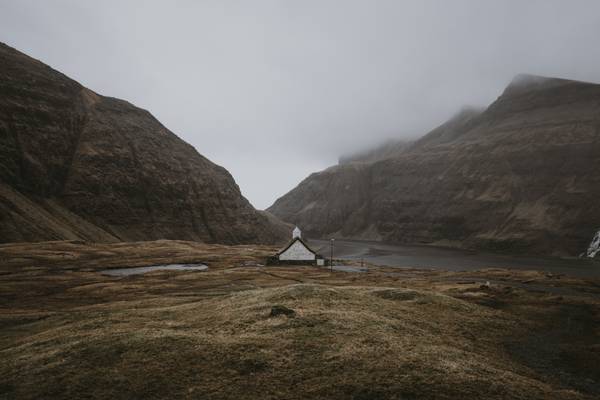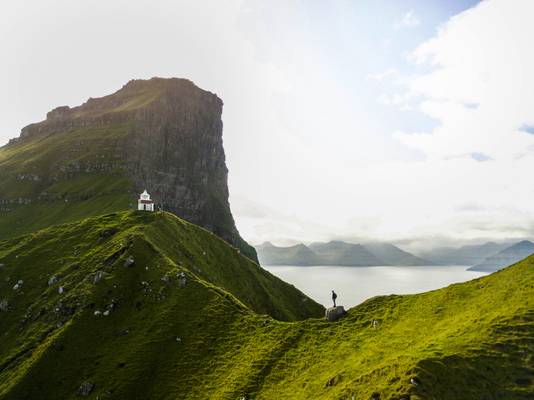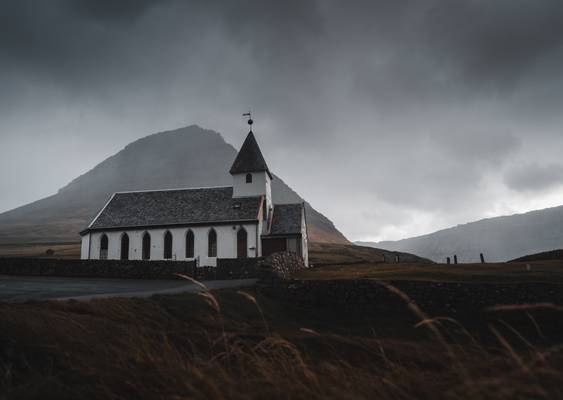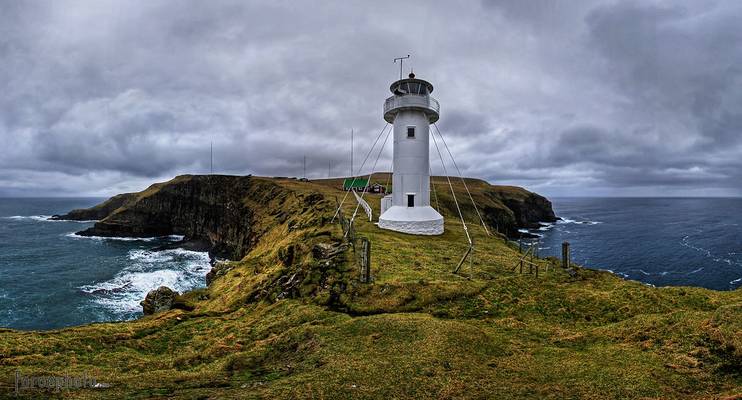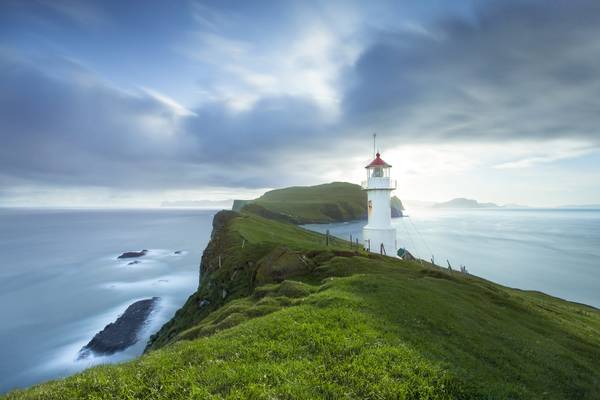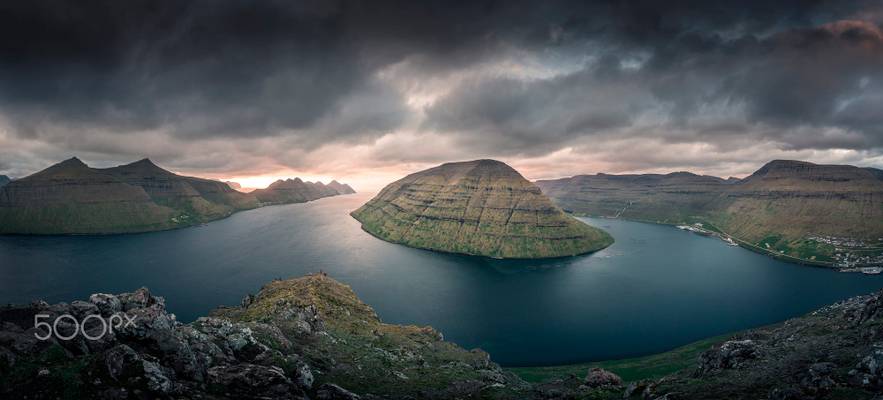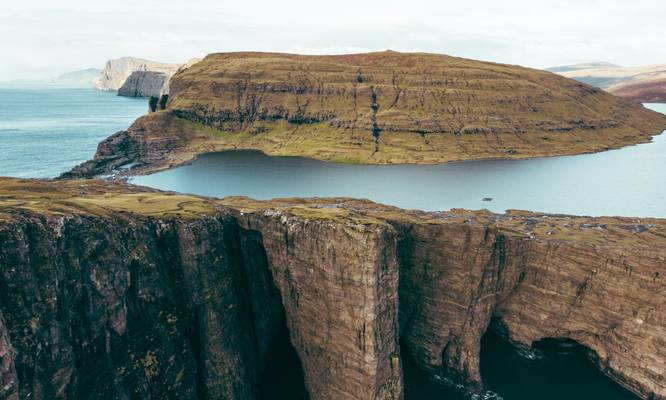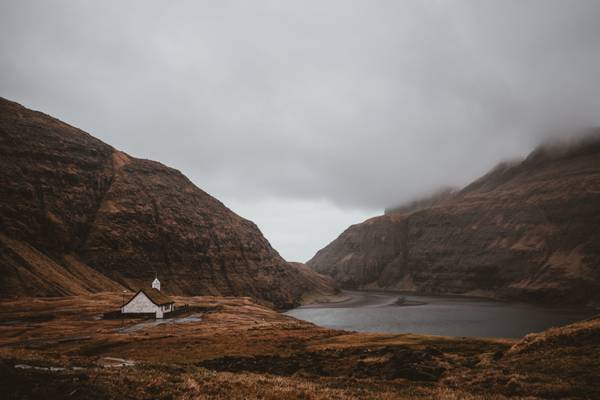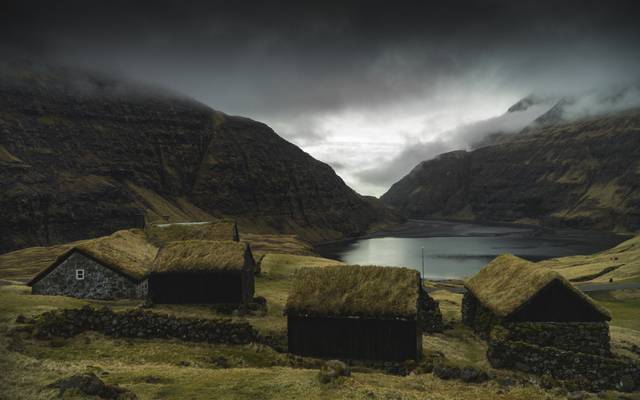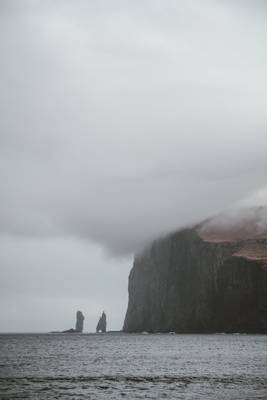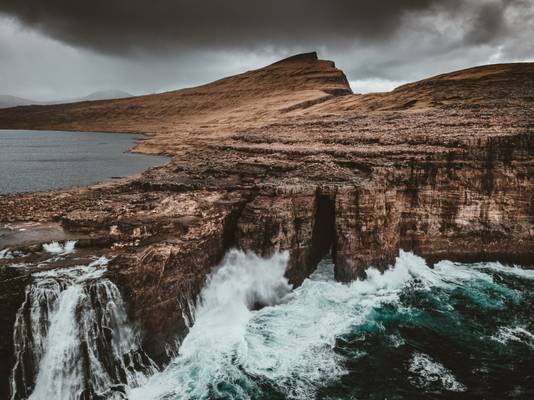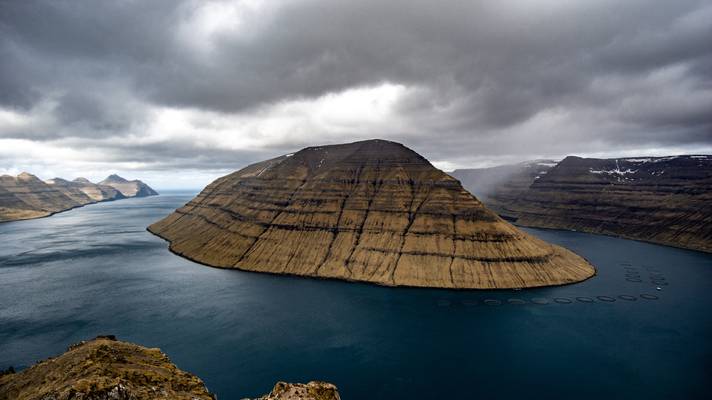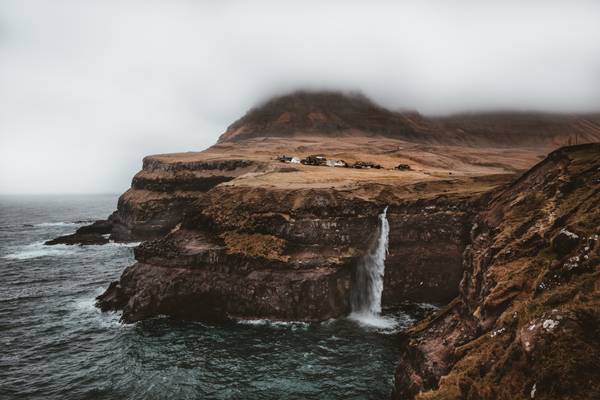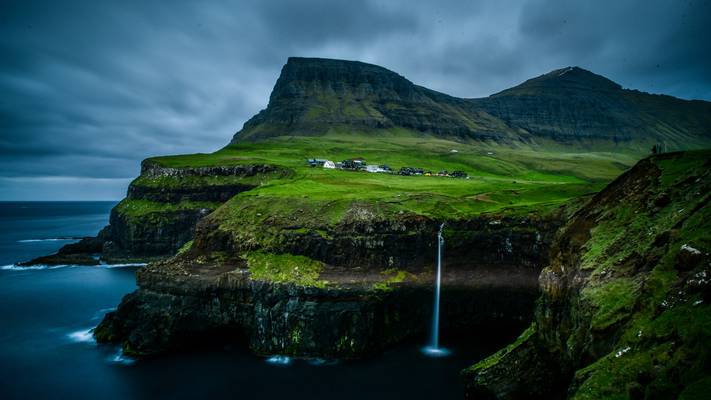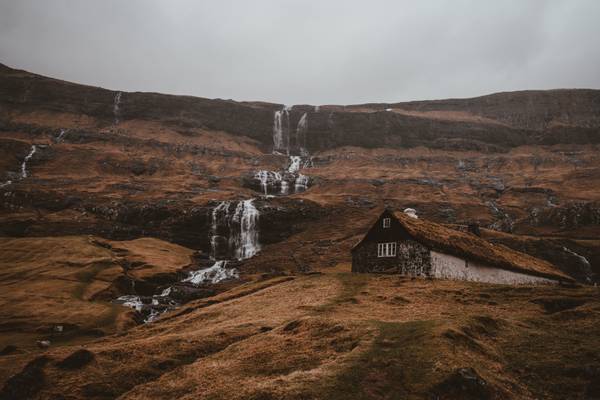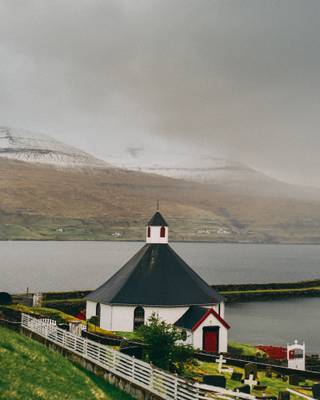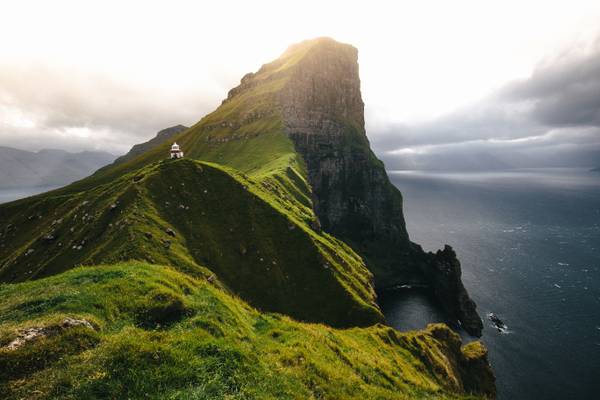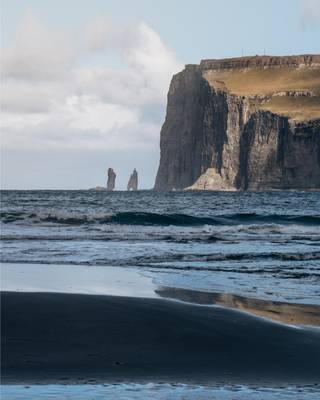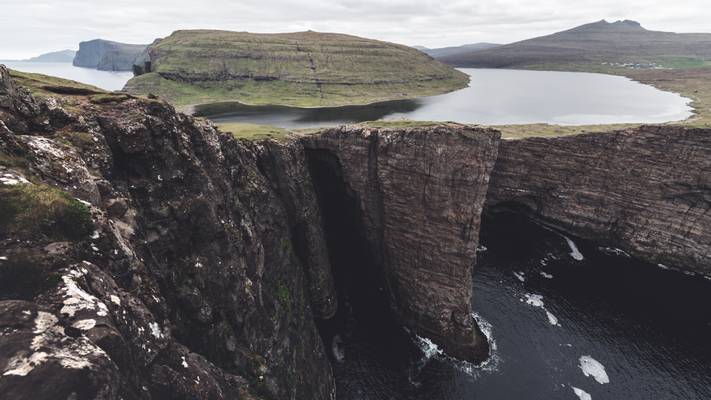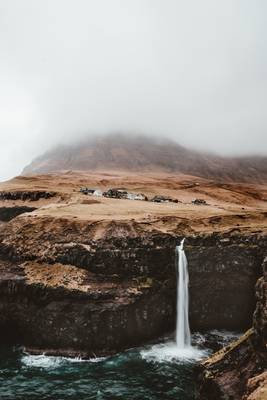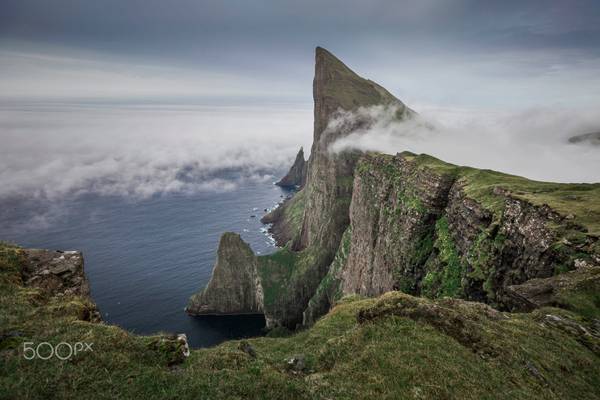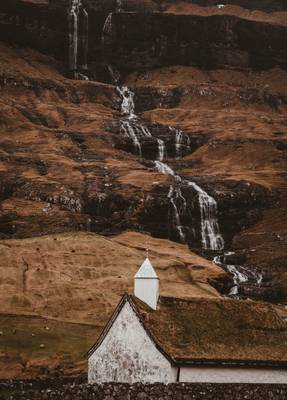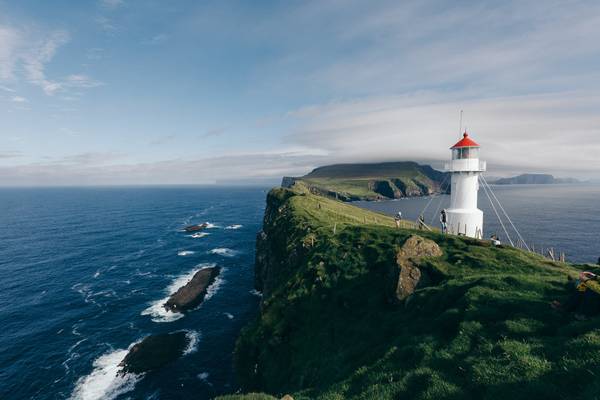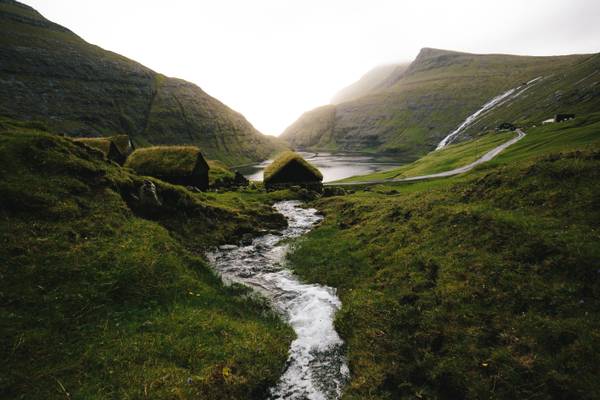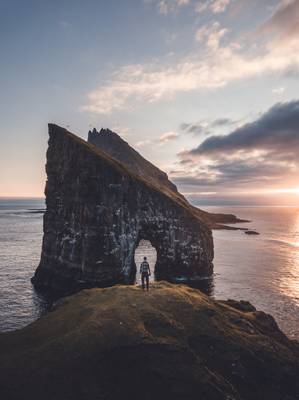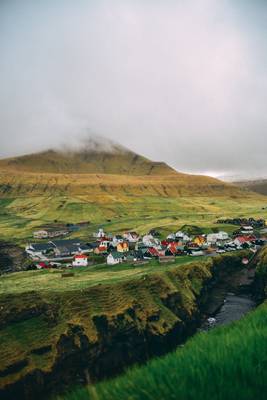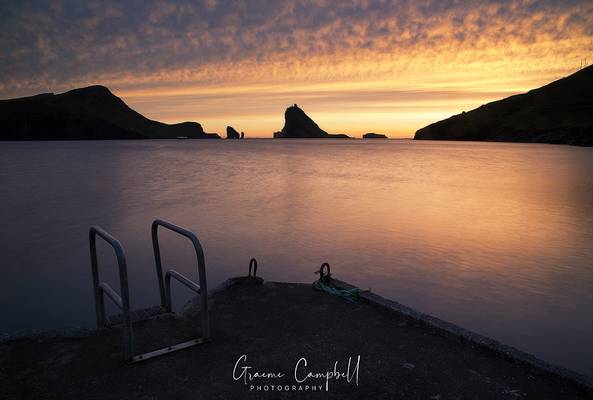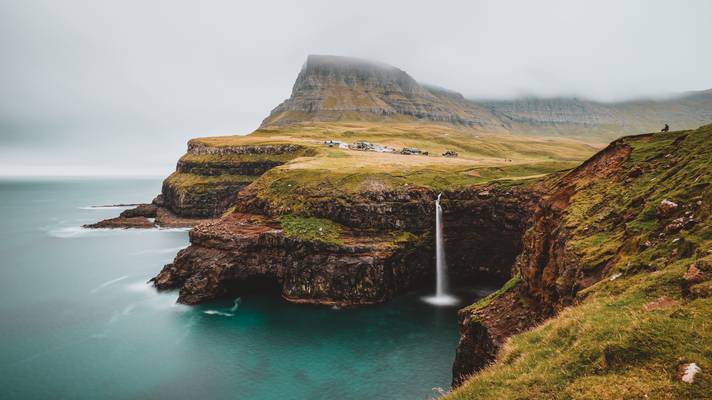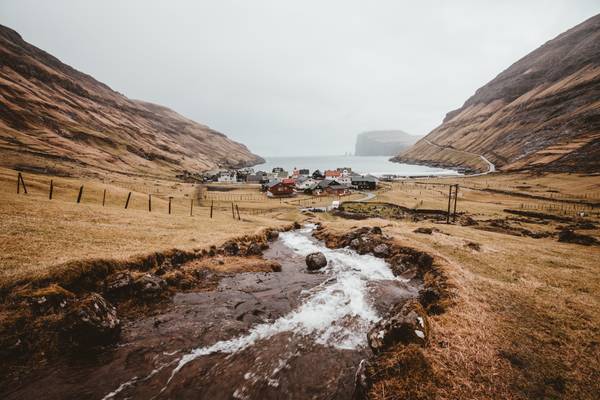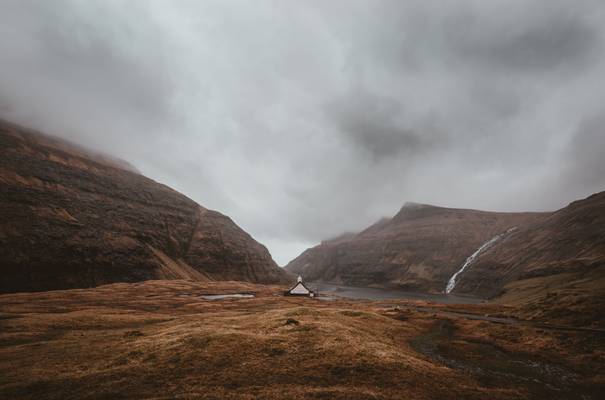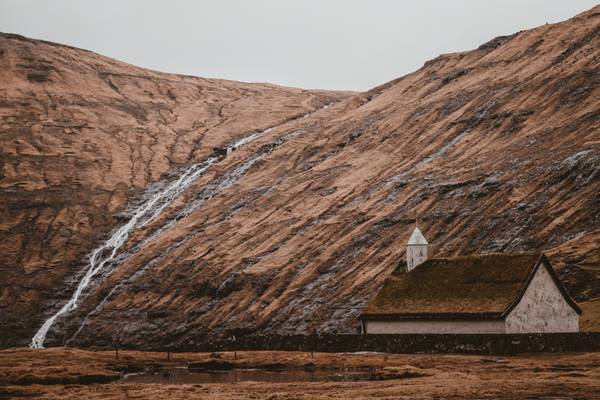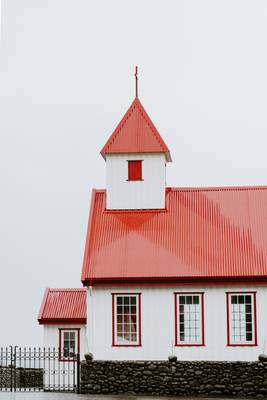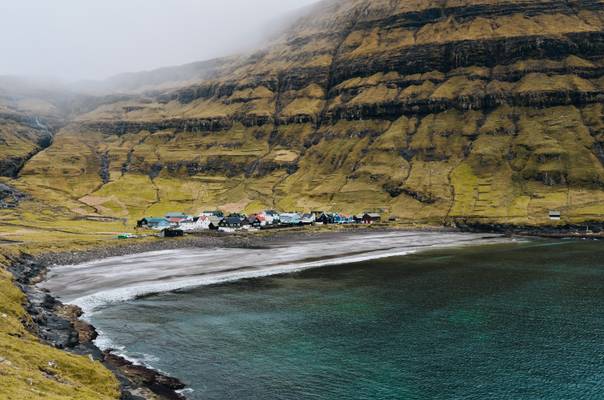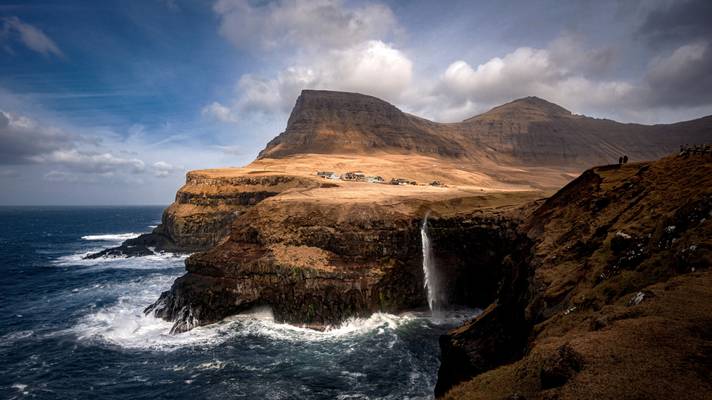
Faroe Islands
The Faroe Islands, located in the North Atlantic Ocean, is a stunning archipelago consisting of 18 islands. The rugged landscapes, dramatic cliffs, and picturesque villages make it a paradise for photographers. The Faroe Islands offer a unique opportunity to capture the raw beauty of nature, with its ever-changing weather and light conditions. Some of the most popular photography locations include the iconic Mulafossur waterfall, the colorful houses of the capital city Tórshavn, and the stunning sea stacks of Drangarnir.
Photography of Faroe Islands
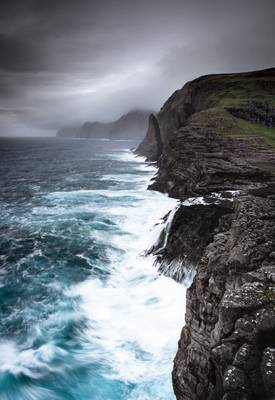
by Sebastian Boring
After hiking along the “flying lake”, I got to this amazing location, and even in summertime, I got it all to myself. This is where said lake flows into the North Atlantic Ocean. The weather was not as windy as I had hoped for, yet the waves were crashing on the rocky sides here … and that was the only thing one could hear.
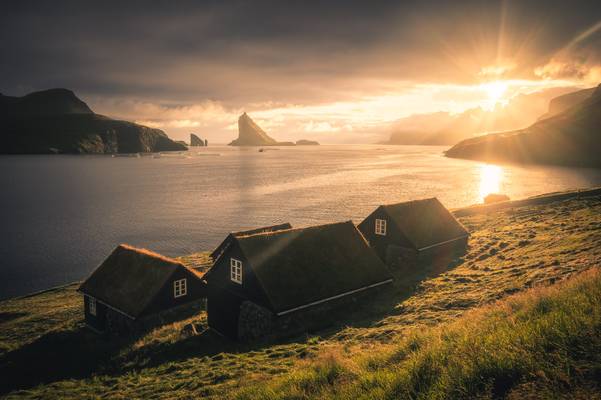
by Jiri Hajek
Didn't expect much from this cloudy afternoon, but then sun got through the cloud cover.
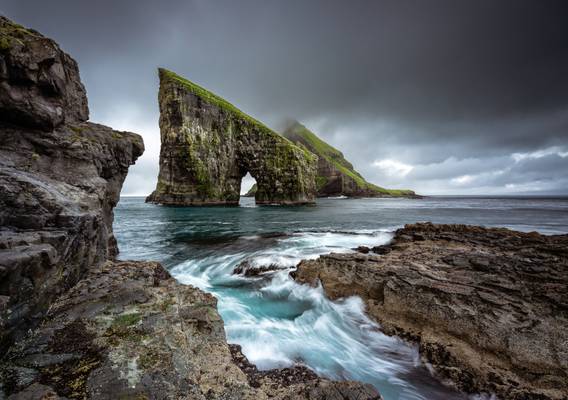
by Sebastian Boring
A longer and more demanding hike takes you to Drangarnir (which translates to sea stacks). The large sea stack occludes the smaller one. In the back, you can see Tindholmur disappearing in the cloudes. It was an amazing trip out here, and the scenery is well worth the hassle. Note: you have to get a guide as this is private land.
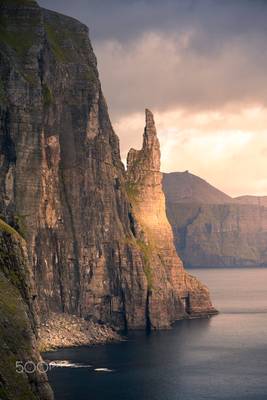
by Bastian Linder
500px.com
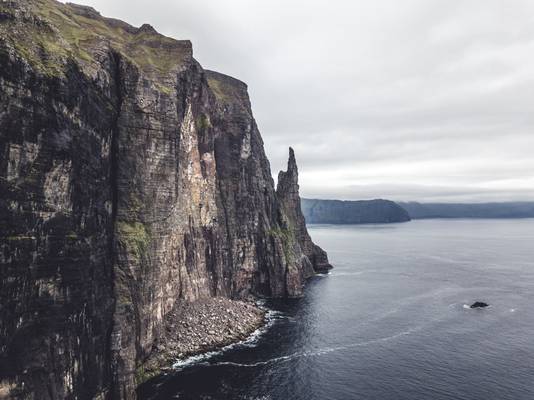
by Andrew Svk
This freestanding rock is called Trøllkonufingur, which means Witch’s finger.
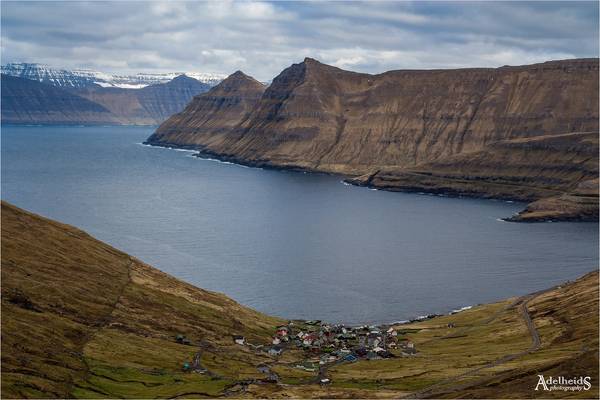
by Adelheid Smitt
The village of Funningur on the island of Eysturøy. Beautiful, unspoilt fjord scenery on these peaceful islands in the Mid-Atlantic, that are a self governing part of Denmark.
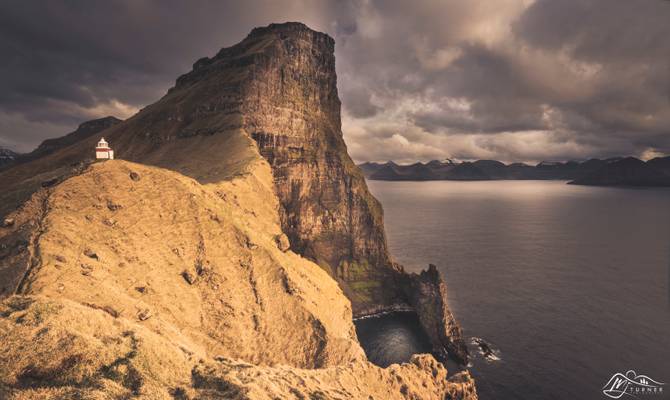
© M J Turner Photography
|| Website**** || Facebook**** || Twitter**** || Instagram**** || Pinterest**** || Etsy**** || 500px**** ||...
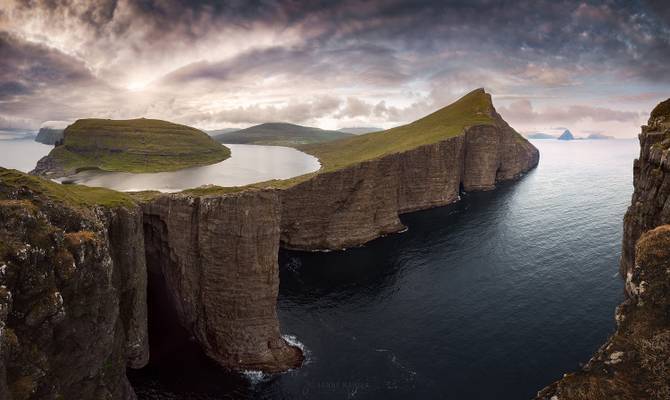
by Janne Kahila
500px.com
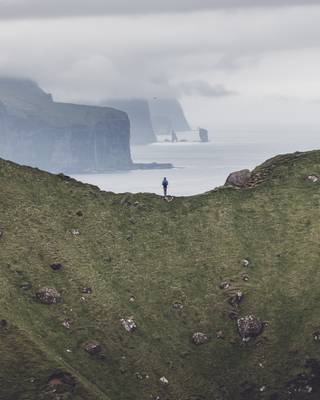
by Andrew Svk
Amazing views from Kalsoy island make you feel incredibly small.
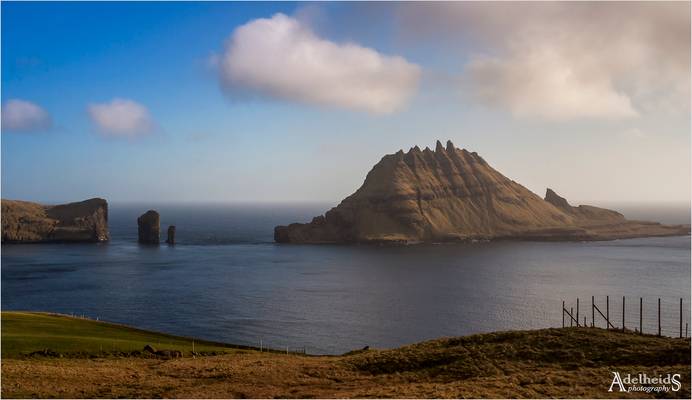
by Adelheid Smitt
Most of my time visiting the Faeroe Islands was spent waiting for good weather. Here finally I could see the fog lifting and offering some visions in blue.
[#11 on explore 13/8/16]
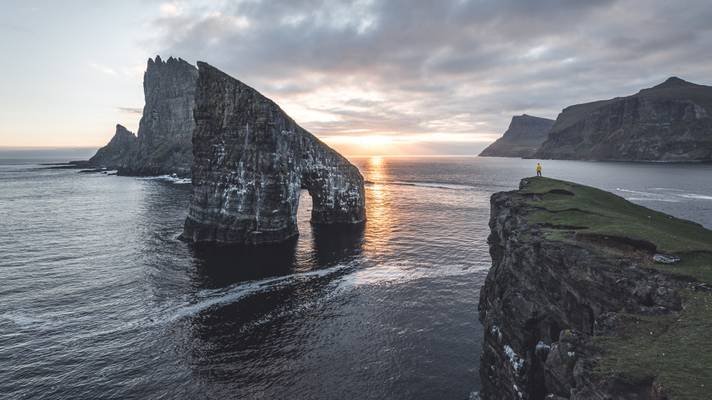
by Andrew Svk
Panorama of Drangarnir one of the most scenic spots on the Faroe Islands
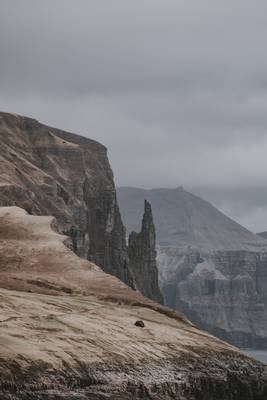
by Annie Spratt
‘I’m glad I will not be young in a future without wilderness’
—Aldo Leopold
The ultimate home location I feel, imagine living in that house, with that view. I literally gasp just daydreaming about it.

by Michael Fousert
The famous Múlafossur waterfall, Faroe Islands.
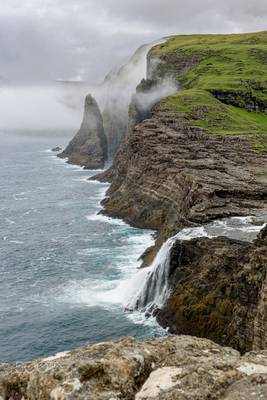
by Patricia Schuppi
500px.com
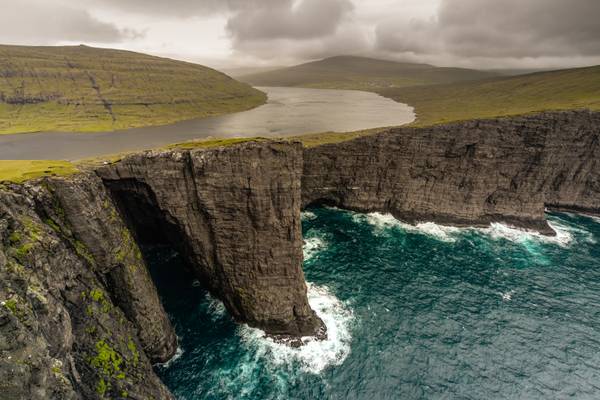
by Sebastian Boring
A nice hike of about 3 kilometers brings you to this magnificent sight: the floating lake “Sørvágsvatn”, which seems to hover above the sea. In fact, further left, there is a waterfall where it crashes into the North Atlantic Ocean. It is simply an epic site … no more, no less.
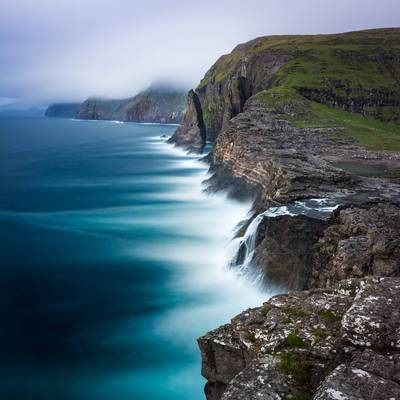
by Robert Hawke
500px.com
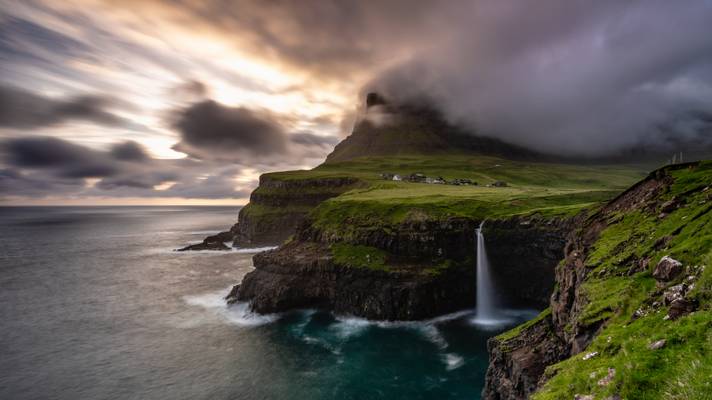
by Sebastian Boring
A short walk off the road takes you to this beautiful waterfall: and if you’re really lucky, you get a sunset (I heard it doesn’t show that often here). Go there, enjoy, and take in the sound of crashing waves.
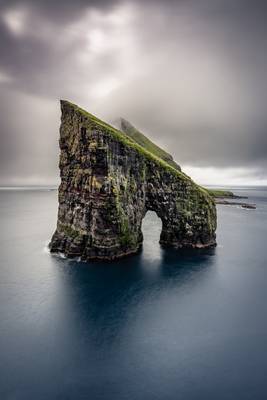
by Sebastian Boring
This was actually the first shot I got of Drangarnir (or the big sea stack of the two). The small sea stack hides behind this magnificent rock formation. In the back rises Tindholmur, yet another fantastic rock formation/island. The pease here is amazing, we were only a small group of hikers/photographers that went there. It was truly amazing.
Note: you will need a guide to get here, not only because it’s private land, but there are some sketchy parts in the path (or no path at all). When you visit the Faroe Islands, make sure not to miss this.
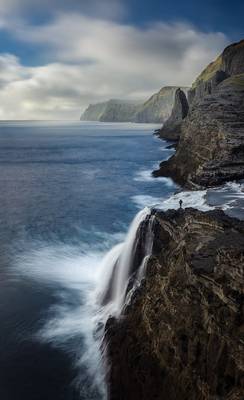
by Paul Zizka
facebook.com
Thanks to all Phoide contributors to Faroe Islands!
Most notably Jiri Hajek and Adelheid Smitt.
